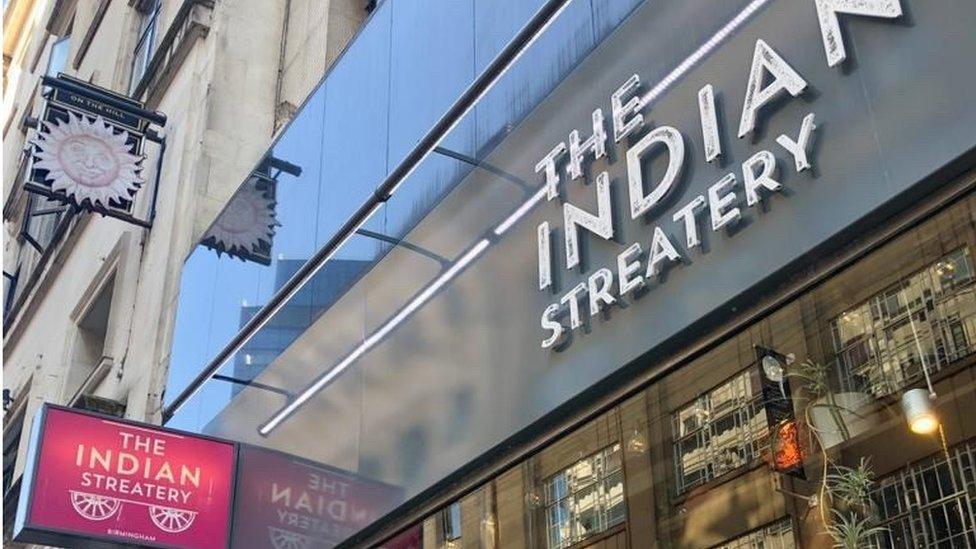Birmingham hospitality firms hope to revive after-works drinks culture
- Published
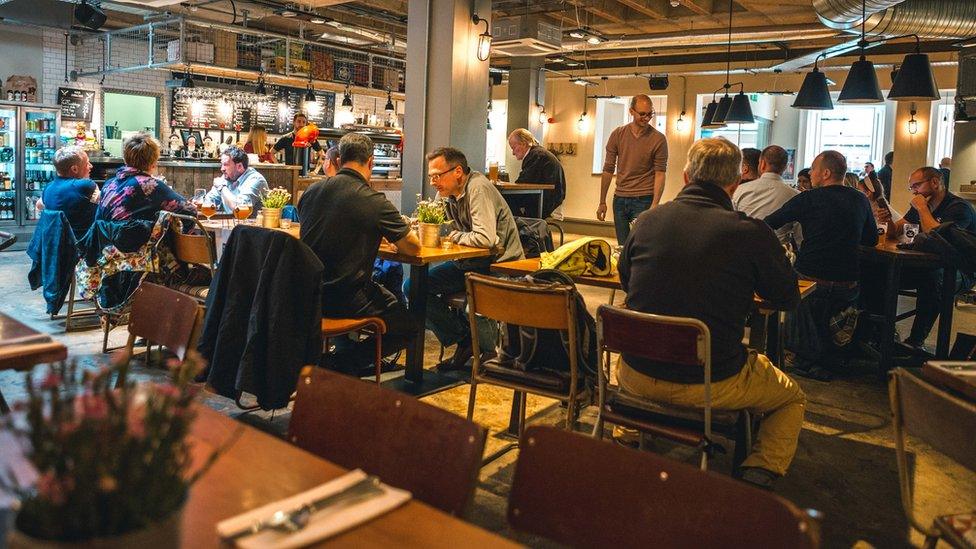
Purecraft Bar and Kitchen began serving coffee after the pandemic to attract the morning crowd
Birmingham's hospitality sector says office staff are continuing to pass up the chance of after-work drinks more than five months after the end of the last Covid lockdown.
Emerging out of the pandemic, the rise of hybrid working - splitting working time between the office and home - has spelt trouble for pubs and bars, which would normally be the place for workers to unwind.
But businesses are working on ways to revive the post-works drinks culture.
"The business district now is almost empty", said Paul Brazier, the head of marketing for Purecraft Bar and Kitchen.
Based in Waterloo Street, opposite the famous "Floozy in the Jacuzzi" fountain, the bar has seen the hustle and bustle that was once part the city centre become more muted.
"There's hardly any office workers around so it feels like a lot of people now are working in the office Monday to Thursday then taking the opportunity to work from home on Fridays, which is impacting us quite considerably," he said.
"Over the weekends, the late-night drinkers are no longer around, people are leaving the city a lot earlier now versus what we would have seen in 2019 and before.
"We're also seeing less bar or pub hopping.
"The bar and hospitality part of the business district is crucial to the success of Birmingham, without it, it would be probably a bit of a ghost town."
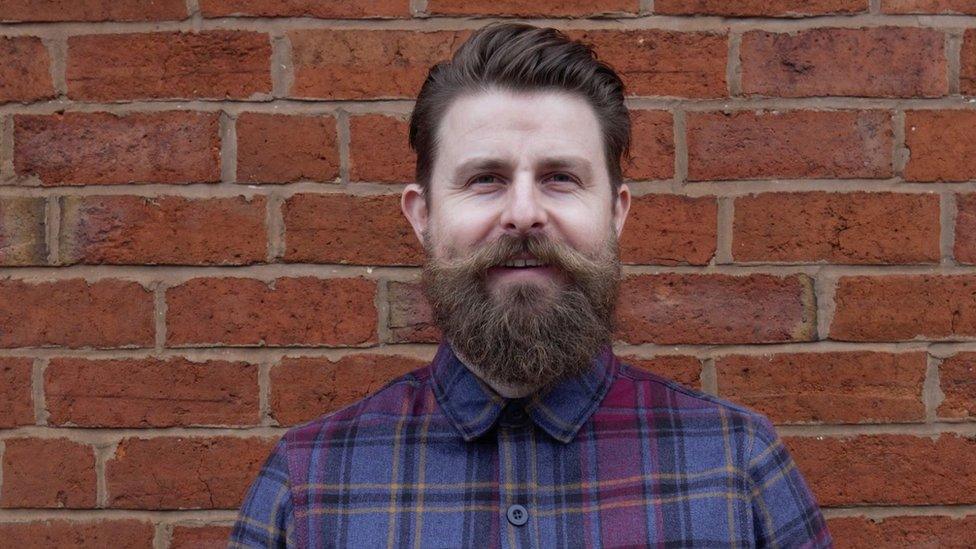
Paul Brazier says bar crawls appear to be a thing of the past
Figures collected by the Office of National Statistics back up Mr Brazier's observations.
In December, spending in pubs, restaurants and entertainment was still down on pre-pandemic levels as money spent at supermarkets on eating in rose.
This drop in the lead up to Christmas had a huge impact on trade for The Lost & Found in Bennetts Hill.
New friends
"December last year was really difficult for us," operations director Geoff Webber said.
"We thought we'd got through the worst of it, but it took away 50% of our sales just in that month from cancelled bookings and Christmas parties, which is a huge part of our business.
"That really hurt us but I think people feel a lot more comfortable now.
"The biggest thing is people haven't made new friends over the last two or three years because they haven't had that opportunity. That's what you get when you go to a bar after work or on the weekend."
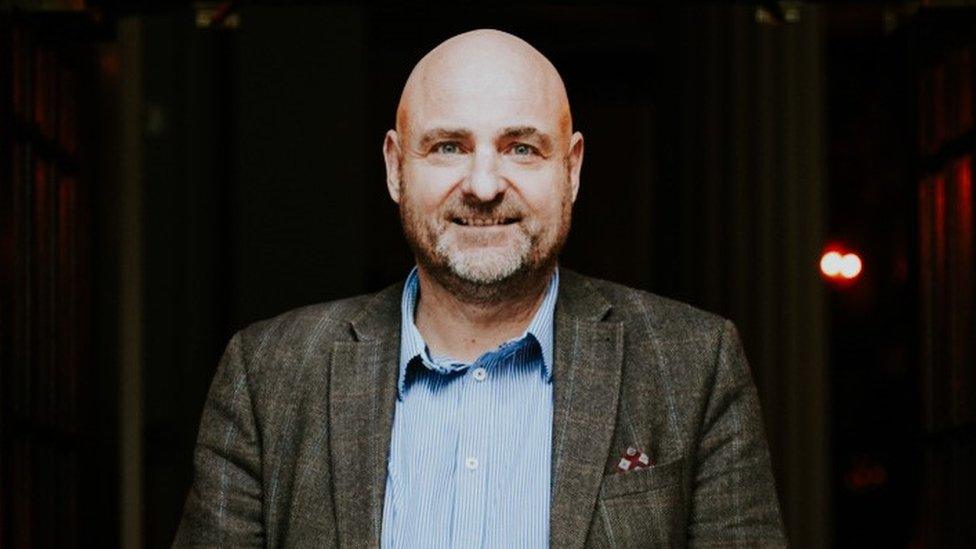
Geoff Webber said people had missed out on making new friends over the last two years
According to ONS data, 57% of office-based staff are now travelling to work, leaving bars and restaurants hopeful that they will see a return of the after-work drinks culture.
Andrew Sutton, the general manager for venue Tonight Josephine in the Burlington, has noticed the gradual return of socialising in Birmingham, but said the rising cost of living was also keeping some would-be revellers at home.
Tightening belts
"You can see the after-work drinks culture returning, you see a lot more people out in venues dressed in business attire," he said.
"I think that a lot of people's attitudes prior to the pandemic was to go out for wine or beer after work to celebrate when something good had happened in the office, but now they are less likely to travel into Birmingham if they are working from home.
"That's where we've seen the biggest impact, people are now starting to plan parties and events, but going out with the team isn't anywhere near what it once was.
"Mid-week we don't have the footfall that we once had. It may be the case that people are back in the offices, but are tightening their belts and conscious about spending money.
"One of the biggest things that has changed is everyone has become used to a more sit-down, relaxed style of drinking, because for so long we could only sit outdoors or in groups of six inside, we couldn't get up and dance."
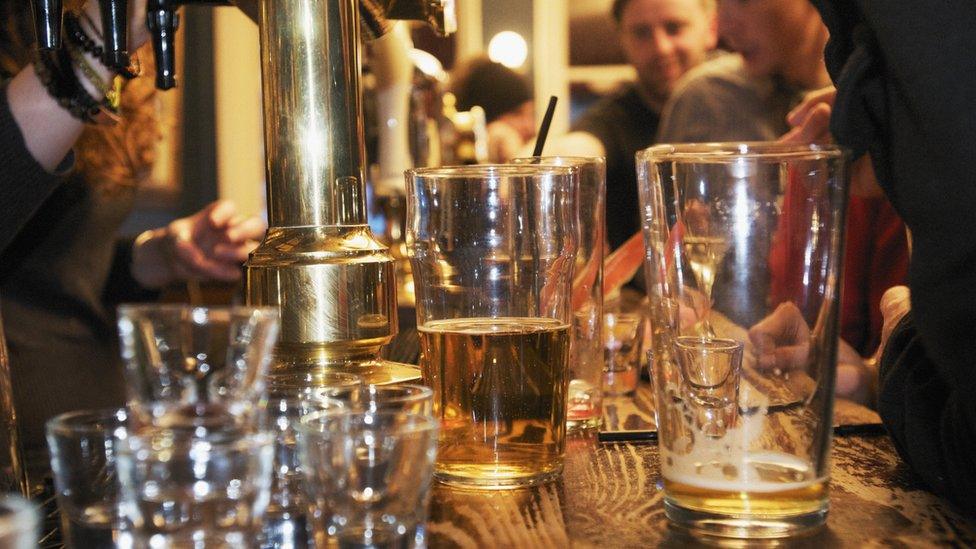
Westside Business Improvement District believes things are starting to look up for the hospitality sector after a tough two years
Erin Henwood, policy advisor at Greater Birmingham Chambers of Commerce, said the decline in weekday visitors and after-work drinkers demonstrated a "clear need to revitalise city centres" and "foster growth of firms that are essential to the country's economy".
Many venues in Birmingham have altered their business models and launched new initiatives to entice workers back.
The Lost & Found, like other bars, has introduced offers between on weekday afternoons and early evenings specifically to target that market.
Mr Webber said he had seen a 10% rise in sales week-on-week since January, suggesting the approach was working.
In a similar fashion, Purecraft Bar and Kitchen has altered its menu to include specialist dishes in a bid to keep workers in the city centre after their shifts end.
The chief executive of Westside Business Improvement District, Mike Olley, said habits had changed, but believed things were looking up.
"I have no doubt it will come back. In February and March things started to pick up and there is now a happiness in the air," he said.

Follow BBC West Midlands on Facebook, external, Twitter, external and Instagram, external. Send your story ideas to: newsonline.westmidlands@bbc.co.uk, external
Related topics
- Published14 December 2021
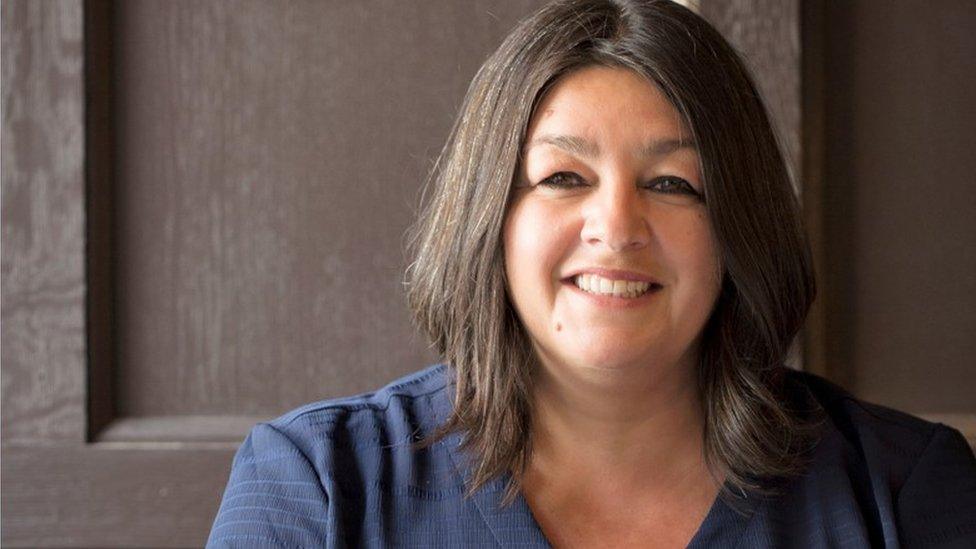
- Published14 December 2021
